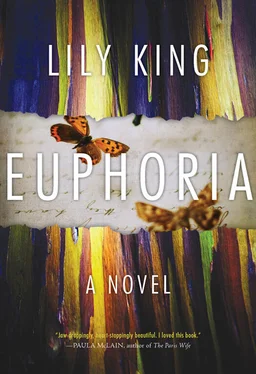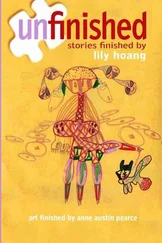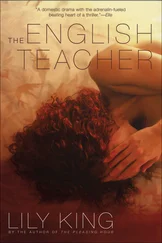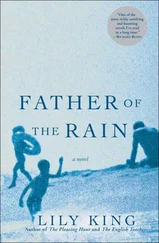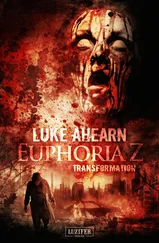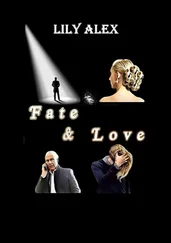For my mother, Wendy,
with all my love
Quarrels over women are the keynote of the New Guinea primitive world.
— Margaret Mead
Experience, contrary to common belief, is mostly imagination.
— Ruth Benedict
As they were leaving the Mumbanyo, someone threw something at them. It bobbed a few yards from the stern of the canoe. A pale brown thing.
‘Another dead baby,’ Fen said.
He had broken her glasses by then, so she didn’t know if he was joking.
Ahead lay the bright break in the curve of dark green land where the boat would go. She concentrated on that. She did not turn around again. The few Mumbanyo on the beach were singing and beating the death gong for them, but she did not look at them a last time. Every now and then when the four rowers — all standing, calling back to their people or out to other canoes — pulled at the same time, a small gust of wind struck her damp skin. Her lesions prickled and tightened, as if hurrying to heal in the brief dry air. The wind stopped and started, stopped and started. She could feel the gap between sensation and recognition of it, and knew the fever was coming on again. The rowers ceased rowing to stab a snake-necked turtle and haul it into the boat, still writhing. Behind her, Fen hummed a dirge for the turtle, too low for anyone but her to hear.
A motorboat was waiting for them where the Yuat met the Sepik. There were two white couples on board with the driver, a man named Minton whom Fen knew from Cairns. The women wore stiff dresses and silk stockings, the men dinner jackets. They did not complain about the heat, which meant they lived here, the men overseeing either plantations or mines, or enforcing the laws that protected them. At least they weren’t missionaries. She couldn’t have tolerated a missionary today. One woman had bright gold hair, the other eyelashes like black ferns. Both carried beaded purses. The smooth white of their arms looked fake. She wanted to touch the one closer to her, push up her sleeve and see how far up the white went, the way all her tribes wherever she went needed to touch her when she first arrived. She saw pity in the women’s gazes as she and Fen boarded with their dirty duffels and their malarial eyes.
The engine when it started up was so loud, so startling, that her hands rose to her ears like a child’s. She saw Fen flinch to do the same and she smiled reflexively, but he did not like that she’d noticed and moved away from her to talk to Minton. She took a seat on the bench at the stern with the women.
‘What’s the occasion?’ she asked Tillie, the gold-haired one. If she’d had that hair, the natives would never have stopped touching. You couldn’t go into the field with hair like that.
They both managed to hear her over the engine and laughed.
‘It’s Christmas Eve, silly.’
They had been drinking already, though it couldn’t have been much past noon, and it would have been easier to be called silly if she hadn’t been wearing a filthy cotton shift over Fen’s pajamas. She had the lesions, a fresh gash on her hand from a sago palm thorn, a weakness in her right ankle, the old Solomon neuritis in her arms, and an itchy sting between her toes that she hoped wasn’t another batch of ringworm. She could normally keep the discomfort at bay while she was working but it kicked in hard watching these women in their silks and pearls.
‘Do you think Lieutenant Boswell will be there?’ Tillie asked the other woman.
‘She thinks he’s divine.’ This one, Eva, was taller, stately, bare-fingered.
‘I do not. And so do you,’ Tillie said.
‘But you are a married woman, my dear.’
‘You can’t expect someone to stop noticing people the minute the ring goes on,’ Tillie said.
‘I don’t. But your husband certainly does.’
In her mind Nell was writing:
— ornamentation of neck, wrists, fingers
— paint on face only
— emphasis on lips (dark red) and eyes (black)
— hips emphasized by cinching of waist
— conversation competitive
— the valued thing is the man, not having one, necessarily, but having the ability to attract one
She couldn’t stop herself.
‘Have you been studying the natives?’ Tillie asked her.
‘No, she’s come from the Twilight Ball at the Floating Palais.’ Eva had the heavier Australian accent, the most like Fen’s.
‘I have,’ she said. ‘Since July. I mean, the July before this last one.’
‘A year and a half up that little tributary somewhere?’ Tillie said.
‘Good God,’ Eva said.
‘A year first in the mountains north of here with the Anapa,’ Nell said. ‘And then another five and a half months with the Mumbanyo up the Yuat. We left early. I didn’t like them.’
‘ Like them?’ Eva said. ‘I would think keeping your head attached to your neck might be a more reasonable goal.’
‘Were they cannibals?’
It was not safe to give them an honest answer. She did not know who their men were. ‘No. They fully understand and abide by the new laws.’
‘They’re not new, ’ Eva said. ‘They were issued four years ago.’
‘I think to an ancient tribe it all feels new. But they obey.’ And blame all their bad luck on the lack of homicide.
‘Do they talk about it?’ Tillie said.
She wondered why every white asked about cannibalism. She thought of Fen when he returned from the ten-day hunt, his sad attempt to keep it from her. I tasted it, he finally blurted out. And they’re right, it does taste like old pig. It was a joke the Mumbanyo had, that the missionaries had tasted like old pig.
‘They speak of it with great longing.’
The two women, even long brazen Eva, shrank a bit.
And then Tillie asked, ‘Did you read the book about the Solomon Islands?’
‘Where all the children were fornicating in the bushes?’
‘Eva!’
‘I did.’ And then, Nell couldn’t help herself, ‘Did you like it?’
‘Oh I don’t know,’ Tillie said. ‘I don’t understand what all the fuss is about.’
‘Is there fuss?’ Nell said. She’d heard nothing about its reception in Australia.
‘I’ll say.’
She wanted to ask by whom and about what, but one of the men was coming around with an enormous bottle of gin, refilling glasses.
‘Your husband said you wouldn’t want any,’ he said to her apologetically, for he did not have a glass for her.
Fen had his back to her but she could see the expression on his face just from the way he was standing with his back arched and his heels slightly lifted. He would be compensating for his wrinkled clothing and his odd profession with a hard masculine glare. He would allow himself a small smile only if he himself had made the joke.
Fortified by several sips, Tillie continued her inquiry. ‘And what will you write about these tribes?’
‘It’s all a jumble in my head still. I never know anything until I get back to my desk in New York.’ She was aware of her own impulse to compete, to establish dominance over these clean, pretty women by conjuring up a desk in New York.
‘Is that where you’re headed now, back to your desk?’
Her desk. Her office. The diagonal window that looked out onto Amsterdam and 118th. Distance could feel like a terrible claustrophobia at times. ‘No, we’re going to Victoria next, to study the Aborigines.’
Tillie pulled a pout. ‘You poor thing. You look beat up enough as it is.’
‘We can tell you right here all you need to know about the Abos,’ Eva said.
‘It was just this last five months, this last tribe.’ She could not think how to describe them. She and Fen had not agreed on one thing about the Mumbanyo. He had stripped her of her opinions. She marveled now at the blankness. Tillie was looking at her with a drunk’s depthless concern. ‘Sometimes you just find a culture that breaks your heart,’ she said finally.
Читать дальше
